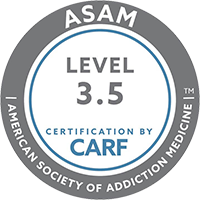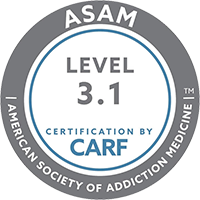
I’ve been in recovery for quite a while now. I was sober for close to ten years before relapsing because of multiple reasons that lowered my security for a kidney stone to successfully convince me I needed opiates. After a little while back out in active addiction I entered into treatment at ARC’s men’s center in Somerset, KY, Lake Hills Oasis. I’ve been in active recovery ever since. I built a reasonably good life for myself in the nine years of recovery before my relapse. I owned a house and car, provided for my son, built a career, earned a couple of degrees and some certifications, started a non-profit, developed several groups that helped thousands recover, and was a leader in my church. In a little over a year back in addiction I lost everything. All of it was gone. The way people defined me changed drastically in those 18 months. I went from being labeled as a father, leader, educator, minister, professional, counselor, to being an “addict.”
People are truly fascinating. Just think about it for a second. We live our entire lives building an image. This image is swayed by what others think we should be, what we think we should be, and then what we actually are. Only in rare situations, if ever, do all three match. Many people don’t even think about the differences. We might care about how others see us, and some think about this too much. Sociologist Robert Merton developed a way of looking at how people interact with these differences called Strain Theory. The simplified version of Strain Theory is that society creates goals that people should meet to be “normal” or “successful” and people will work to meet these goals causing strain if a person cannot. Where the problem exists is that many people lack the resources necessary to achieve these goals. In order not to be an outcast or unsuccessful, they find ways to reach society’s goals in deviant or unacceptable ways.
Once an individual is found to be operating this way to achieve the goal they are punished if the mode was criminal or, at the very least, shunned by the masses. After this happens, the individual is now labeled, it becomes even harder to accomplish the goal in a satisfactory way causing the person to regress even more. Not only does the person now reject accepted paths to reach the goal, but now they reject the entire goal and rebel. Now the individual has arrived at a place of having a master label and is subjected to the stereotypes around this label. The master label can be so controlling to a person’s behavior that they will own the label and their actions will start to prove the stereotypes correct. This is called a self-fulfilling prophecy.
Labeling Theory and Strain Theory can help to explain why it isn’t so easy for a person to stop using substances and then change into the American dream of being married, having two-and-a-half kids, a dog, and owning a house with a white picket fence. Defeating the labels and striving to achieve society’s expectations can be just as difficult as quitting the use of substances.
When I left residential treatment, I started to feel like myself again. Those labels that I used to be, the father, minister, and so on, began to return very quickly within myself. The problem was that no one believed I had returned to those roles. They rejected what I wanted people to see me as and what I was starting to become again. I hadn’t yet convinced people that I had “changed.” It’s an odd place to be with people. If you haven’t been there, it’s difficult to explain. I knew I was ok. I had done many great things in the prior nine years. None of that is what people saw. People tend to define others by their last greatest mistake. This label is strong. This can only be overcome with time and consistency. This is a point many fail. They want others to accept their change and relabel them as quickly as the difference is seen within themselves. This frustrates the individual, and they rebel and refuse to conform. Nothing at this point can be rushed. Trust is earned.
The career that I had built before my relapse was now gone, and at the time was a year away from having a chance at returning. I had found myself in an odd spot. I applied for around 50 or more jobs. The jobs that I could use my degrees would reject me because of my criminal background and my relapse. The others would deny me because I was “overqualified.” This was a little bizarre to me and equally frustrating. I had somehow gotten myself to a point where I, short of knowing someone, couldn’t gain employment. The societal goal of the American dream was very much unachievable for me at this point. I was educated, experienced in my field, overqualified for an entry-level job, yet it was impossible to achieve currently. I could either reject standard ways of succeeding or wait on time to heal. I waited, but others don’t they bail out at this point. They find a different, more deviant way to succeed or they reject the entire process and go back to fulfilling the prophecy of their label.
My battle wasn’t over when I entered into recovery. Many times this is when the hardest fight starts. Removing the label that they have gained and the struggle of building a life that is both successful and respectable are two battles that take time. Time is all we really battle at the core. It seems to be the main component in many of life’s issues. This time that it takes to transition through labels is frustrating and the person transitioning needs support. People who can see past the label and see the possibility of the new label are essential.
Acceptance can be found in the rooms of meetings with people who are going through and have already gone through this process, or through grace-filled churches who understand that people are not perfect and that their mistakes do not define them. These types of people are so special. They are indispensable in making the time it takes to defeat the label tolerable and to encourage the individual to keep pressing forward. Through consistency, staying the course, the individual can overcome their master label. Today I am back to who I am, and others see me similarly. I am a father, son, brother, professional, I own things, pay taxes, minister, and again I’m respected and trusted. Whether time is your enemy or friend is mostly up to you. No matter which, spend it wisely.
Jon has been employed by ARC since July of 2017, graduated from Sanibel House, and is now the Service Manager for Second Chance Auto.





